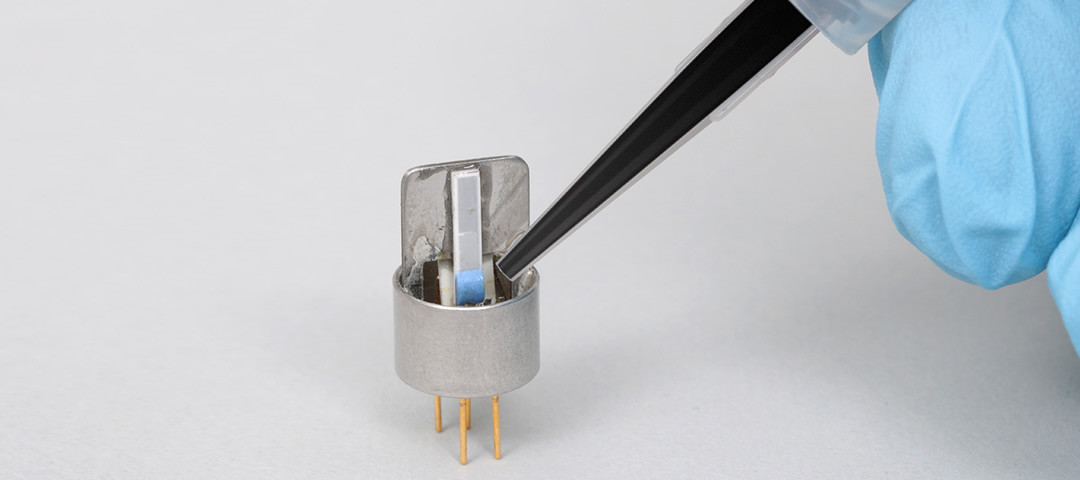Search this site
Polyurethane Adhesives Absorb Stress for Aerospace Applications

Photo shows metal and plastic being bonded with a urethane system.
Rockets, missiles, and airplanes undergo intense stress during takeoff, maneuvers, and landing. Stress can be the result of vibration, thermal expansion/contraction, acceleration/deceleration, torque, and flex. In these extreme applications, a failure of any component can have catastrophic results.
Relieving stress is why engineers like urethane adhesive compounds. A tough but soft material, urethane will “give,” allowing parts to move and shift slightly without snapping, cracking, or loosening.
Urethanes also absorb dissimilar materials CTE (coefficient of thermal expansion) stresses in the bond line during thermal cycling (continual or rapid temperature changes) and thermal shock.
During temperature variances, each part that is bonded together expands and contracts at its own rate based on its unique physical and chemical makeup. For example, an aluminum heat sink may expand at a higher rate than the semiconductor to which it’s bonded.
When designing systems, engineers must account for the CTE mismatch – or risk catastrophic failure. Hence, urethanes act like shock absorbers: they absorb the continual contraction and expansion due to their “give.”
But while urethanes make wonderful shock absorbers, and prevent contamination by eliminating rubbing and chafing of components, aerospace applications frequently require that the adhesive not emit volatile compounds. These compounds can be quite dangerous as they coat surrounding electronics and/ or sensitive optical components, which may cause failures in the future.
To ensure adhesive compounds aren’t emitting volatile compounds, engineers use urethanes that meet ASTM E595, which is NASA’s standard for low outgassing materials.
Appli-Thane® – ASTM E595 urethanes with longer pot life, shorter cures
To help engineers meet low outgas and CTE requirements, Appli-Tec offers its Appli-Thane line of aerospace adhesives and epoxies.
Each adhesive product in the Appli-Thane line features a longer pot life of 1.5 to >4 hours (versus 30 minutes for standard urethanes) and a significantly shorter cure time at lower oven temperatures, typically 1.5 to 2 hours at a more reasonable oven temperature of 65°C.
Standard urethanes can take up 8 hours to cure at 92°C. Appli-Thane materials also remain flexible to temperatures as low as -70°C, providing low stress bonds at a much lower temperature.
Formulated for outstanding performance in aerospace applications and high-performance electronics assemblies, Appli-Thane urethane adhesives are low outgassing and low modulus. They’re also economical.
View the full Appli-Thane line for complete details and technical data sheets.
New Applications
I want to discuss my application challenges, order samples, or place a first-time order.
Existing Applications
I need to reorder an existing part number, I have a BOM/Spec.

